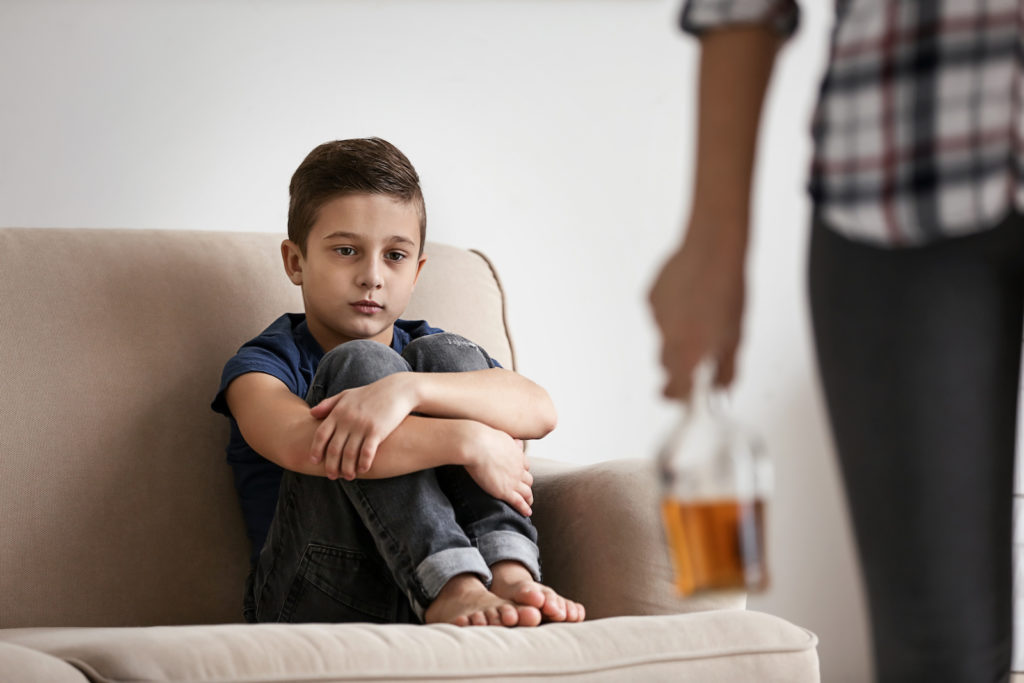Living with an alcoholic can be incredibly challenging, difficult, and often overwhelming. The effects of that personal dynamic are profound and comprehensive. Not only do they affect the alcoholic, but they begin to affect the physical, mental, and even financial health of every person living in that household.
Additionally, they can frequently cause intrapersonal conflicts. These conflicts can create additional stress on the family members involved, even though they may rarely be involved directly. Treatment is an absolute necessity when living with an alcoholic, and it can be painful, but most growth is. Successful treatment can be the beginning of an entirely new life, for all members of the household.
How Living With an Alcoholic Impacts You
The people often affected most seriously by living with an alcoholic, are the closest family members. Spouses and children are frequently the ones who suffer the greatest. Not only can the experience impose a wide variety of emotions and feelings, but the complexities of those emotions may be too much for them to handle without professional guidance or help.
As alcoholism progresses and gets worse, the people living with the alcoholic will usually feel increasing amounts of anger, disappointment, frustration, and even discouragement. The alcoholic will very frequently make promises of getting help, treatment, quitting drinking by themselves, and so on, but will end up breaking them all. Over and over they will create excuses and even blame others for the situation that they now find themselves in.
They often try repeatedly, particularly spouses, to push the addict to get professional help. This begins to take a severe toll on the relationship, often being the impetus for fight after fight. Soon enough, the family members may begin to experience denial or even enabling behavior in an attempt to cope with the devastating emotional effects being experienced by the family members of the alcoholic.
Children often have it extremely hard if one or both parents are alcoholics, as they often miss out on significant exposure to stable environments and safe living conditions. These are things that children need in order to thrive and can leave them burdened with the massive emotional and psychological trauma resulting from being the parent of an alcoholic.

This often results in one of the most serious effects of alcoholism, its tendency to be “hereditary”. While there are certainly genetic indications that addiction may be predisposed in some people, the cycle of substance abuse and alcoholism, in particular, is well-noted in children of alcoholics. These children can grow up saddled with anxiety, depression, abuse problems of their own, and even eating disorders.
Children that are the product of alcoholic parents are also seen to have a chronic self-esteem issue, and sometimes need extensive therapy to even understand what healthy relationships are. They engage in self-harm, substance abuse beyond alcohol, and can even become suicidal.
Guide to Living With An Alcoholic
No matter what you are able to do to help them, in the end, you cannot blame yourself or anyone other than the alcoholic for their behavior. Remember this, especially since so many of those that are living with an alcoholic feel like it is somehow their fault. Like they should have said more or done more to help prevent them from even getting to this stage of the disease. But that is not your fault.
One of the most important things to do as a family member of an alcoholic is to make sure that you and your loved ones are taken care of, physically safe, and emotionally safe during the times when the family member is drinking. Once you have taken that step, you may want to consider additional social support such as a support group for you and the other members of the household.
Be sure that you are setting healthy boundaries for yourself and the rest of the household. Without boundaries, you run the risk of developing enabling behaviors. You obviously still love your spouse, but you should be sure that you do not help contribute to their abuse cycle. Be sure that you have people to confide in outside the family, a therapist or friend. Your family may be too close to give you advice that is still relatively objective.
If children are being affected, make sure they have trusted friends or adults that they can talk to. Not just to confide in, but to simply vent and get things off their chest. It can be very helpful to their overall mental health and can give them a better chance at thriving long-term.
How to Get Help if Living With An Alcoholic
Support groups can be an invaluable tool, not only for the family members of the alcoholic but for the alcoholic themselves. Support groups like Alcoholics Anonymous offer support for the entire family, as well as the addict. They can be a safe place for open and honest discussion, without fear of judgment, and can be very important in the overall healing process.
In difficult cases, the family members may agree that an inpatient rehabilitative program may work better. This may be needed in more severe cases, or where the drinking has been very heavy or going on for a very long time. It may also be the method that simply has the highest chance of success.

In some cases of heavy or long-time alcoholism, there may also be significant withdrawal symptoms from quitting drinking. This is another reason that it can be very beneficial to have a treatment professional assist with the recovery process.
When an alcoholic seeks treatment, it often has a much higher chance of success when a medical professional sits down with the patient and their family and figures out a treatment plan that is tailored to their needs. Not only are they receiving the help that they need, but it has been designed to work with them so that they have the best chances of successful sobriety.

